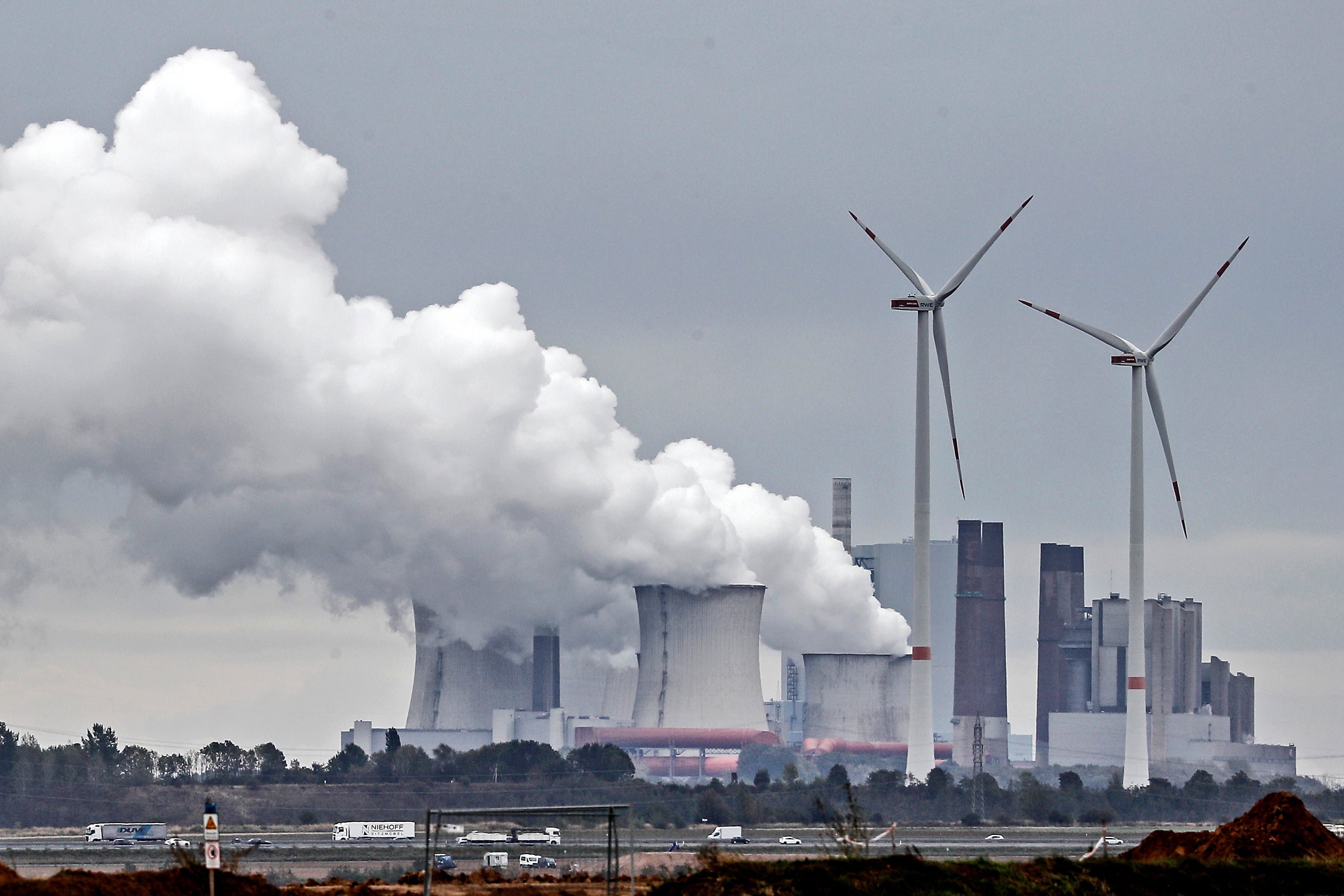Germany maps path to reaching 'net zero' emissions by 2045
The German government has adopted an ambitious plan to reduce the country’s greenhouse gas emissions to ‘net zero’ by 2045

Your support helps us to tell the story
From reproductive rights to climate change to Big Tech, The Independent is on the ground when the story is developing. Whether it's investigating the financials of Elon Musk's pro-Trump PAC or producing our latest documentary, 'The A Word', which shines a light on the American women fighting for reproductive rights, we know how important it is to parse out the facts from the messaging.
At such a critical moment in US history, we need reporters on the ground. Your donation allows us to keep sending journalists to speak to both sides of the story.
The Independent is trusted by Americans across the entire political spectrum. And unlike many other quality news outlets, we choose not to lock Americans out of our reporting and analysis with paywalls. We believe quality journalism should be available to everyone, paid for by those who can afford it.
Your support makes all the difference.The German government adopted an ambitious plan Wednesday to reduce the country's greenhouse gas emissions to ‘net zero’ by 2045, five years earlier and with deeper cuts than previously planned.
The roadmap approved by Chancellor Angela Merkel s Cabinet sets out a number of measures for achieving the new target, including spending more to expand renewable energy sources and tougher financial penalties for polluters.
The measures come with a hefty price tag.
Raising the target for cutting emissions over the next decade from 55% to 65%, compared with 1990 levels, is expected to cost the German economy 12 billion euros ($14.6 billion). But Environment Minister Svenja Schulze said the costs should be viewed as an investment in future growth markets, noting that Germany is already a global leader in some sectors of the green economy.
“If we make further progress there, then those will be the jobs of the future,” Schulze said.
Her arguments echoed those expressed last month by U.S. President Joe Biden when he pitched a $2 trillion plan to tackle climate change and revive the American economy.
The German government was pushed to agree to more ambitious targets last week after the country's top court ruled that existing measures placed too much of the burden for curbing global warming on younger people. The bill agreed by the Cabinet means Germany will have to reduce its greenhouse gas emissions by about 150 million tons every five years, from 750 million tons a year in 2020.
Schulze said the new goals are “targets with teeth,” specifying how much each sector of the economy has to contribute.
The new measures including requiring landlords to shoulder half of the emissions-related surcharge on oil or gas used for heating homes, penalizing those who don't invest in insulating their property.
Senior figures in Germany's powerful auto industry have complained that the goal of rapidly phasing out combustion engine vehicles in favor of electric cars is at risk due to the government's decision to shut down all nuclear power plants by the end of 2022.
The environmentalist Greens party wants the rate at which solar and wind power plants are built to be doubled. It is also calling for government borrowing rules to be relaxed when it comes to investments in climate measures.
___
Follow AP's climate coverage at https://apnews.com/Climate
Subscribe to Independent Premium to bookmark this article
Want to bookmark your favourite articles and stories to read or reference later? Start your Independent Premium subscription today.